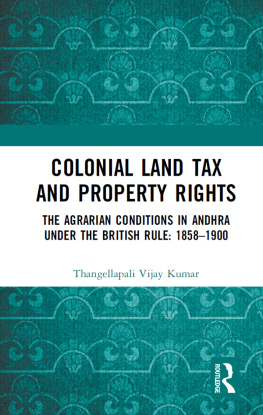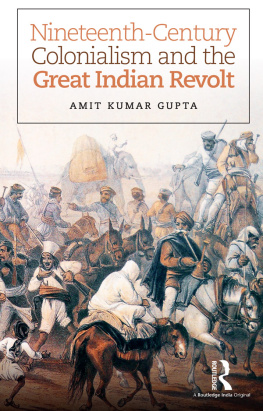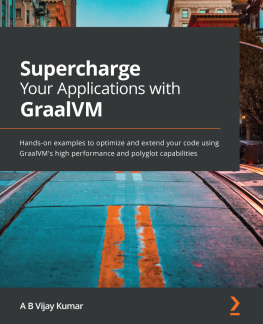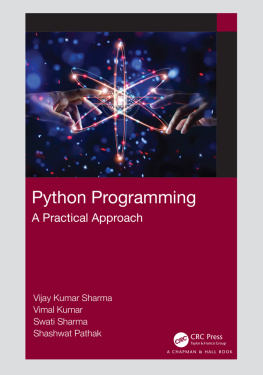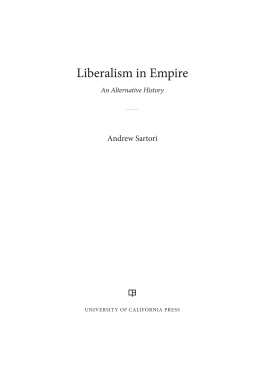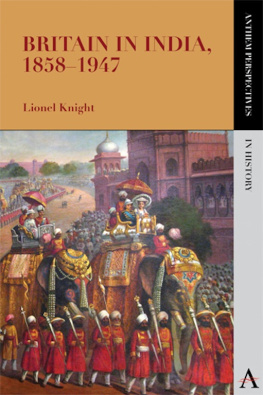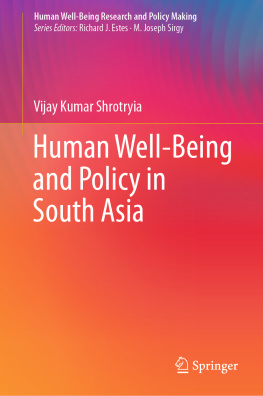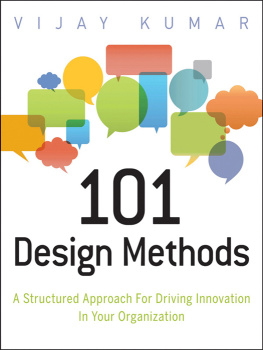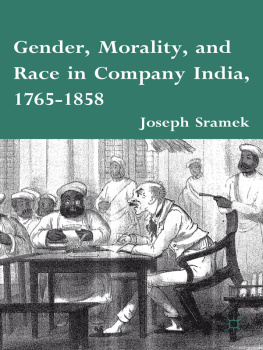COLONIAL LAND TAX AND PROPERTY RIGHTS
Over several decades, modern Indian historiography has evolved in many different directions. But this book reminds us, its time to return to the foundations of modern Indian history writing. Economic and agrarian history has been the bedrock on which Indian historical thinking and imagination was built. Dr. Thangellapalli Vijay Kumar may have reopened this field with rigorous archival research and analytical study of the Andhra region of Madras Presidency. This work definitely deserves attention.
LAXMAN D. SATYA
Professor of History
Lock Haven University of Pennsylvania
Thangellapalli Vijay Kumars Colonial Land Tax and Property Rights is a pioneering study of agrarian conditions in colonial Andhra (1858-1900). His narrative locates production conditions in agriculture under the determinants of ecological system, British instituted property relations, irrigation and land taxation regime.
A TLURY MURALI
Professor of History,
University of Hyderabad
This volume analyses the importance of property rights on land which were transformed by the British in the form of colonial land revenue system in Andhra region of Madras Presidency. It initiates a discussion of the traditional production systems like irrigation, agricultural methods, etc., which were replaced by the colonial ones. It further shows how the small peasantry suffered under the new system. This book also deals with the relations between the colonial state, rich peasants, zamindars and peasants under the ryotwary and zamindary settlements, which were introduced at the beginning of the nineteenth century. It further examines how the peasantry lost their rights on lands and how it went under the control of merchants and rich peasant moneylenders. Consequently, de-peasantization, wage labour, and general agrarian impoverishment followed.
The colonial legal system favoured zamindars, landlords and rich peasants against small peasants, who could not go to colonial courts due to heavy legal costs. The volume analyses in minute detail various Acts, which affected the property rights of peasants on their lands.
Thangellapali Vijay Kumar is Associate Professor and Head, Department of History, Sikkim University. He was educated in Osmania University where he received his MA (1984) and Ph.D. (1993).
Colonial Land Tax and
Property Rights
The Agrarian Conditions in Andhra
under the British Rule: 1858-1900
THANGELLAPALI VIJAY KUMAR
First published 2018
by Routledge
2 Park Square, Milton Park, Abingdon, Oxon OX14 4RN
and by Routledge
711 Third Avenue, New York, NY 10017
Routledge is an imprint of the Taylor & Francis Group, an informa business
2018 Thangellapali Vijay Kumar and Manohar Publishers & Distributors
The right of Thangellapali Vijay Kumar to be identified as author of this work has been asserted by him in accordance with sections 77 and 78 of the Copyright, Designs and Patents Act 1988.
All rights reserved. No part of this book may be reprinted or reproduced or utilised in any form or by any electronic, mechanical, or other means, now known or hereafter invented, including photocopying and recording, or in any information storage or retrieval system, without permission in writing from the publishers.
Trademark notice: Product or corporate names may be trademarks or registered trademarks, and are used only for identification and explanation without intent to infringe.
Print edition not for sale in South Asia (India, Sri Lanka, Nepal, Bangladesh, Afghanistan, Pakistan or Bhutan)
British Library Cataloguing in Publication Data
A catalogue record for this book is available from the British Library
Library ofCongress Cataloging in Publication Data
A catalog record for this book has been requested
ISBN: 978-1-138-32377-3 (hbk)
ISBN: 978-0-429-45122-5 (ebk)
Typeset in AGaramond 11/13
by Kohli Print, Delhi 110 051
To my Father
Vishwanadham Thangellapalli
(1935-92)
Contents
| APDG | Andhra Pradesh District Gazetteer |
| APSA | Andhra Pradesh State Archives, Hyderabad |
| ASR | Annual Revenue Settlement Report of the |
| Madras | Presidency Fasli 1289 (1879-80), Madras |
| EPW | Economic and Political Weekly |
| GO | Government Order |
| IESHR | Indian Economic and Social History Review |
| IFC | Report of the Indian Famine Commission |
| MAS | Modern Asian Studies |
| NPR | Report on Native papers in the Madras Presidency examined by the translators to the Government of Madras (Confidential), Government of Madras, Madras |
| PBR | Proceedings of the Board of Revenue |
| PBR (CW) | Proceedings of the Board of Revenue (Court of Wards) |
| PBR (LR) | Proceedings of the Board of Revenue (Land Revenue) |
| PBR (RS, LR & A) | Proceedings of the Board of Revenue (Revenue Settlement, Land Records and Agriculture) |
| RD | Revenue Department |
| RARD | Report on the Administration of Registration Department in the Madras Presidency for the year 1892-93, Government of Madras, Madras |
This book is an outcome of my doctoral thesis submitted to the Osmania University and awarded in 1993. Subsequently, having discussed with experts in the field and after contacting some of the major institutions, I revised the text. Owing to my tight academic schedule and family responsibilities, it took me several years to bring it to its present form.
The task of completion of this work was possible only due to the intellectual and material support of some significant individuals and institutions. The University Grants Commission, India, provided the junior as well as senior research fellowships for five years from April 1988 to April 1993. I would like to record the help I received from the directors, librarians, archivists and staff of various institutions, especially, the Andhra Pradesh State Archives, Osmania University General Library, Andhra Pradesh State Central Library, Sundarayya Vignana Kendram, Narla Memorial Museum and Dravidian Research Center (all in Hyderabad); Tamil Nadu State Archives, Connemara Library (both in Chennai); Office of the Inspector General of Registrations, Chennai; and the National Library, Kolkata.
I am deeply indebted to Y. Vaikuntham for his supervision of my research work. I gratefully put on record the help extended by Atlury Murali, who not only advised me from the beginning of my research work but also thoroughly read the drafts of my thesis and the subsequent revisions. I thank Pala Krishna Murthy for his valuable suggestions in the material collection. Laxman Das Satya painstakingly read all the chapters of the manuscript and gave invaluable suggestions and comments. I am grateful to him. The insights of Chinta Srinivasa Reddy into the earlier drafts helped me to revise them properly. The discussions I had with and the comments made by K.S.S. Sheshan, G. Sudarshan Reddy, M. Venkateswar Rao, G. Krishna Reddy, V. Anil Kumar, B. Yadava Raju, Peter L. Schmitthenner, D. Ramasubba Reddy, Adapa Satyanarayana, Wolde-Tinsae Tewolde, Bhukya Bhangya Nayak, G. Arun Kumar, K. Muthyam and R.K.K. Rajarajan were educative and constructive. I express my sincere thanks to them. The moral and material support given by my friends, Potu Seetharamayya (Seetharamulu), B.B. Rajendra Prasad, Vasireddy Venkatadri Naidu, V. Ram Reddy, and K. Venkateswarlu when I was in need, is highly appreciable. I am also thankful to Meera Reddy, who read the manuscript and made corrections. Finally, the imperceptible support extended by my wife Padmavathi, daughter Sangha Mithra, and son Chandhra Has made my effort in bringing out this book less burdensome.

